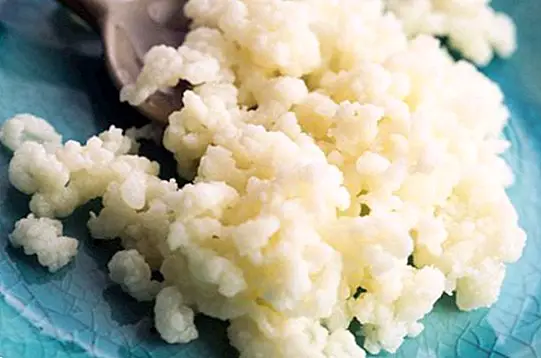How to improve your intestinal transit in just 1 week
Did you know that, according to the statistics that are known, our country is among the countries with the highest number of people suffering from constipation? Spain, Colombia and Turkey are the countries with the highest index: with a prevalence of between 20% and 21%, although other statistics indicate that it affects more than 30% of the population. We also know that 3 out of 10 women suffer from it, so that of 9.5 million people who have problems in their intestinal transit, the majority are women. However, the prevalence as the age advances increases equally in both men and women.
When it is presented constipation we are facing a delay in intestinal emptying, which is characterized mainly by a frequency of defecation less than three times a week. Among other aspects, not only can the need for greater effort in the evacuation occur, but an increase in the consistency of the stool, which makes it extremely difficult.

Among the main causes that worsen intestinal transit and can influence in a more or less decisive way in the appearance of constipation we find ourselves with stress, follow an unhealthy and correct diet or nutrition, practice little physical exercise and follow a sedentary lifestyle.
Therefore, the key to improve intestinal transit It is changing our habits of life. And that we can do in 1 week, so that our intestinal transit will improve in just 7 days. We explain how.
Eat more dietary fiber
Fiber is a very beneficial component when it comes to avoiding constipation and improving our intestinal transit effectively. Surely you do not consume many foods rich in fiber. Therefore, it is interesting that throughout this week you contribute the following foods to your diet:
- Whole-grain foods: you should not confuse with foods known as Light. Whole foods are foods that have not been refined, and they help in a very positive way to increase fiber intake in your diet. Highlights whole grains and brown rice. For example, you can choose to eat a bowl of whole grains at breakfast with vegetable milk, and accompany it with a piece of fruit or a glass of orange juice or grapefruit. The integral bread (either whole wheat or whole rye) can not be missing either.
- Fruits: both fruits and vegetables and vegetables are also very rich in fiber. You can consume apples, bananas, peaches, pears, tangerines, figs, plums and berries this week (although their consumption will depend on the food calendar, or what is the same, the season in which we are).
- Vegetables and vegetablesAs we said before, vegetables are also very rich in vegetable fibers. Highlights lettuce, Swiss chard, spinach, raw carrots, artichokes, pumpkin, sweet potatoes, broccoli, asparagus, beets and turnips.
- Vegetables: it is advisable to eat between two and four servings of legumes per week. Within this group include foods such as lentils, peas, beans and chickpeas.
- Nuts and dried fruits: both nuts and dried fruits become a traditional remedy known to prevent, treat or prevent constipation. Among the nuts include almonds, pistachios, walnuts and pecans. While dried fruits can not miss dried apricots and figs.

Opt for probiotic and prebiotic foods
Not only should you include foods rich in fiber, such as whole grains, in your diet this week. It is also advisable that you visit your usual herbalist, dietetics store or supermarket and opt for the probiotic foods, which help when it comes to regularize your intestinal transit.
The benefits of probiotic foods
They are foods that contain bacteria acidophilus, which protect against the bacteria that cause certain diseases. Therefore, this type of product is recommended in cases of Crohn's disease, irritable bowel syndrome, chronic constipation and vaginal infections, by improving the proper functioning of our immune system.
You can find them in the market especially in the form of yogurt, although certain soy foods such as tempeh or miso contain small amounts of probiotic. You can also buy them in the form of tablets, capsules and powders.

The benefits of prebiotic foods
At the same time, the known ones stand out prebiotic foods, which are made with components that come from fiber. For this reason they are also suitable for improving traffic and increasing the volume of fecal bolus.
They can be consumed for several days or for a few weeks. However, some nutritionists advise to continue taking them daily, since the bacteria are already in your body.
Drink a lot of water
The truth is that it is a habit that you must do not only during this week, but every day: it is advisable to start the day drinking a large glass of water, and throughout the day, drink at least a liter and a half of water (which amounts to about 6 glasses of water). Of course, if you live in a hot climate or that we are in summer it is advisable to drink a little more water.

It will help you keep your stools soft, while facilitating a better transit of stool through the colon, and its easier removal.
Move, do physical exercise!
The practice of regular physical exercise helps to improve constipation in a completely natural way. Why? Very simple: it complements the peristaltic movements of the intestines, so that it helps our intestinal transit flow better, reducing the hardness of the stool and that these in turn are less dry.
When to practice physical exercise?
You can choose to practice it in the morning or throughout the day. Of course, it is advisable to always wait a few hours after you have eaten. This way you will avoid that the process of digestion is not hindered.

How long should I practice physical exercise?
The minimum recommended is 30 minutes, although the ideal is that the practice of physical exercise lasts between 40 to 60 minutes each time.
What kind of physical exercise to practice?
If your goal is to improve your intestinal transit the key is to opt for aerobic exercises, especially those that remain over time and its practice involves repetitive movements, which in turn perform an additional digestive effect.
Therefore, they emphasize exercises like walking, running, swimming or riding a bicycle.
Other recommendations that will help you improve intestinal transit this week
- Go to the bathroom when you feel the need. If you only go when you see fit, you may lose the defecation reflex.
- Reeducates your intestines: go to the bathroom at least once a day, always at the same time for 10 minutes.
- Avoid sitting for a long time.
- When you go to the bathroom do not make much effort. This way you will avoid anal fissures and hemorrhoids.
Images | Kevin Dooley / Alan Levine / Larry Jacobsen / Alexander / Gareth Williams This article is published for informational purposes only. It can not and should not replace the consultation with a Physician. We advise you to consult your Trusted Doctor. ThemesConstipation


